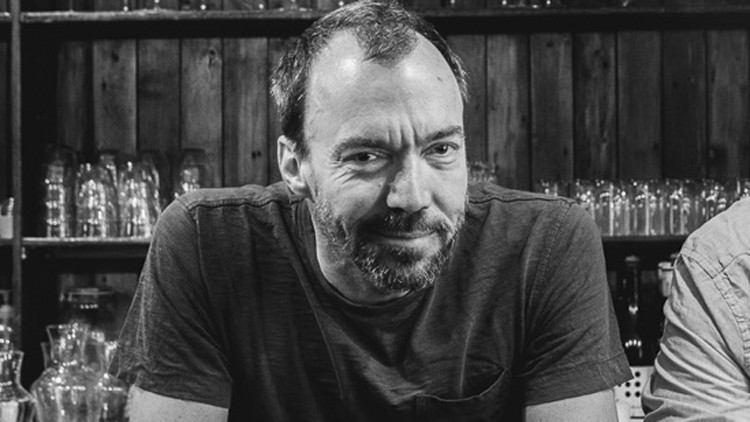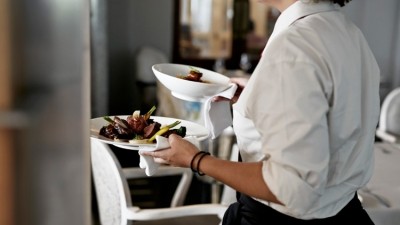Nick Gibson on tackling the sexual harassment of women in the workplace

Where does one start with an issue like this?
We have a number of policies in place but central to all of them is that we won’t tolerate any behaviour that makes women uncomfortable. I want to demonstrate to the women that work for us that it’s a safe space for them. Whatever the cost to the business the right thing will be done. What that means in practice is a zero-tolerance policy for even ‘low-level’ banter. Last year, for the first time ever, we let two chefs we had just hired go for comments that were in our view inappropriate. One of these comments was: ‘will you make me a coffee, I’d like it hot like you are’, some people might consider that insignificant, but to me that is unwelcome to the recipient and therefore not ok.
Were they surprised?
Yes. One of them said that everyone talked like that in the last place they worked. Ultimately people are responsible for their own actions, and we aren’t responsible for different standards being applied elsewhere. Another important point is that you must create an environment in which women aren’t held back. That means hiring them in the first place, promoting them and paying them properly. We’ve had three female general managers and a female head chef. Having women in positions of seniority and trust is really important.
What else?
We try and be aware of language and behavioural norms. We don’t walk into a room and say ‘hi guys’ and we don’t encourage situations where staff are placed in what might be perceived as overly male-orientated or uncomfortable environments. Clearly the emphasis is making situations comfortable for all employees not some.
What about power dynamics?
As an older male employer, I am ultra-careful about how I behave. There can’t be a situation in which there is any chance of an actual or perceived abuse of power. I don’t socialise with staff outside work and I don’t follow them on social media or comment on their posts. I take two or three steps back to create a bias towards care and protection.
Does having more balanced teams help?
Yes. But you must run a kitchen in which women don’t have to do the work to fit in and feel comfortable. They should not have to be the ‘tough cookies’ that Anthony Bourdain writes about in Kitchen Confidential. All women should be able to work in kitchens if they want. And it’s not down to them to civilise kitchens, that is our job as employers and managers.
What about customers?
The zero-tolerance approach applies to customers too. I have had to have words with customers about how they are interacting with female staff. But while it would be incredibly complacent of me to say that nothing inappropriate happens at my pub, as far as I’m aware we have not had any deeply offensive behaviour. We will support our staff. If women are made to feel uncomfortable by men, then it’s not just banter or a bit of fun. We are relentless in our communication of a zero-tolerance approach. I’d like to think that everyone that works for me knows that if it came to it, I’d put financial loss to one side and ask someone to leave the building.
Tell us about what you do on Valentine’s Day…
One day a year, men talk about how much they love their partners and buy them chocolates and roses and take them out for an expensive dinner. But women still have to live the rest of the year in a world that’s run by men in which they are raped, beaten in their own homes, sexually harassed, discriminated against and paid less. Seven years ago, I decided to donate our Valentine Day’s takings to Refuge, a charity that helps women that are suffering from domestic violence, and now do so every year.
All industries have work to do, but this is an issue that’s particularly prevalent in hospitality. Why?
I’m not sure I’m qualified to opine where culture was established. One thing perhaps is that hospitality work takes place in an environment where people let their hair down. It is all too easy for the culture of the workplace itself to blend into those surroundings. Hospitality work is often fun and informal, that’s one of its biggest selling points. But under those conditions people are perhaps more likely to behave inappropriately especially for a work context, especially when alcohol is thrown into the mix. This is not an excuse, neither is being drunk of course.
Are things getting better?
Yes. But we should still acknowledge that this remains a very significant problem in hospitality. Like chef on junior chef bullying, some have excused it in the past as being part of the culture and that people who join the industry should be up for it. “People have a good laugh here, it’s just a bit of banter”. That sort of thing. But I think tolerance for that is diminishing. There are more and more young business owners who are sensitive and aware of the impact of (corrosive/harmful) power structures, language and behavioural norms. Things are improving and talking about it helps. It needs to be something we all speak out against whenever given the opportunity.
Image credit: Katy Dillon


























